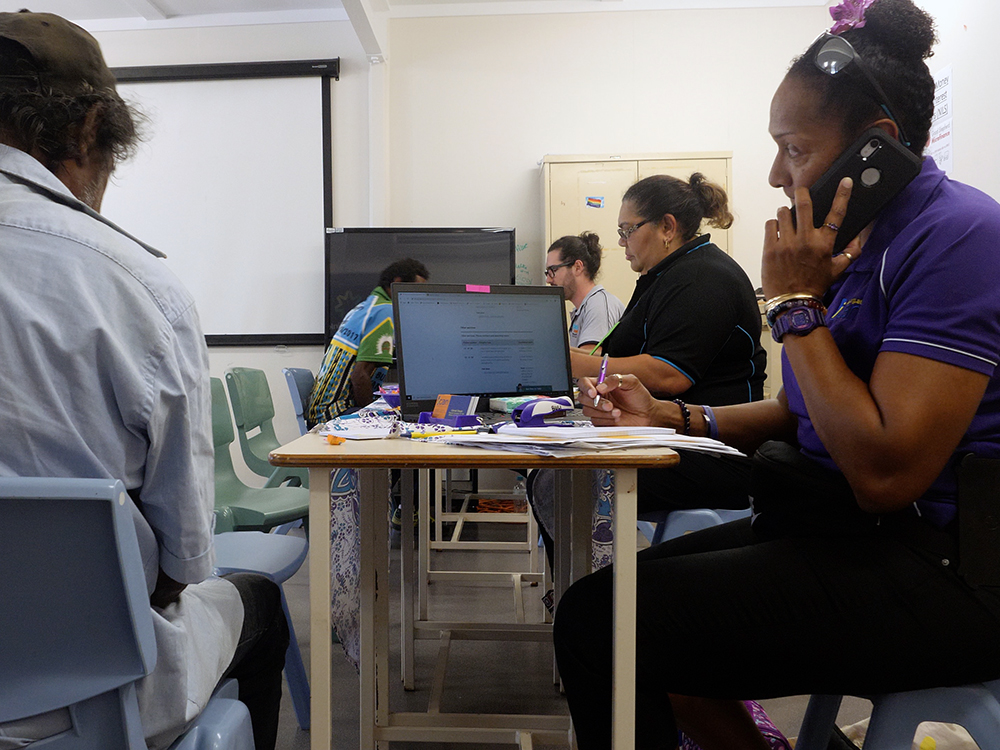
A current review on the Diploma of Financial Counselling [code CHC51115] has posed a risk to the retention of core units that are part of the Financial Counselling profession. In this article, we provide an overview of the importance of systems advocacy and community development and how these have always been foundational components of the financial counselling profession.
Financial counsellors have a substantial role to play in developing communities and advocating for them at both individual and systems levels. Our sector needs to support these core areas of skills and knowledge development for financial counsellors, in order to build a workforce adept at providing a voice for persons experiencing vulnerabilities, and mobilising communities. When systems advocacy is built into our casework, financial counsellors are able to identify and tackle the root causes of financial and consumer detriment more effectively.
‘I think of advocacy as the key activity of a financial counsellor – otherwise we’re just paper shufflers. Sometimes I think we should be renamed ‘financial advocates’. With the mentality of an advocate, we can tackle someone’s problem with the aim of solving it, not just managing it,’ said a financial counsellor in a recent ICAN interview.
This social justice approach to ‘cause’ advocacy has a long history in the Australian financial counselling movement and has historically included consumer campaigns that actively involved the community affected by the issues. Advocacy as community development can arise when practitioners understand the links between policy and practice, where ‘individual definitions of social problems’ are combined with action at the policy level’. When combined, an integration of ‘casework, community development and social action’ can provide the foundation for more inclusive, community driven practice in financial counselling. This is also a key factor in Indigenous-led financial counselling:
‘The focus of Indigenous advocacy differs from traditional case work in that it is generally used not just for enacting change for individuals, but entire communities, and advocacy as a community development practice is an integral aspect to Indigenous financial counselling’ said Carmen Daniels, ICAN Co-founder.
“Community development and systems advocacy are critical components of ICAN’s vision of empowering Indigenous consumers,” said ICAN CEO, Aaron Davis. “If you take these units out of the Diploma of Financial Counselling, we’ll be employing graduates that are not equipped to do the job we require. I’m sure many other financial counselling organisations servicing regional and remote Indigenous communities would feel the same.”
Background to the Diploma’s review
The Diploma of financial counselling has a systematic review governed by legislation and processes as with all Community Services Vocational Education Training [VET] qualifications. The last review concluded in 2015, after a 12-month consultation process that ensured collaboration to strengthen the primary qualification required to become a financial counsellor. In 2016, the current Diploma was implemented and included a name change from the Diploma of Community Services (Financial Counselling) [CHC50218], to the Diploma of Financial Counselling [CHC51115].
The Diploma of Financial Counselling CHC51115 identified ‘Systems Advocacy’ as a core unit [previously elective] and maintained the ‘Develop and implement community programs’, unit. Another significant change was the positive integration of workplace learning requirements, linking the financial counselling industry with training providers. A new review of the Diploma commenced in late 2019 and is currently underway.
Education shapes professions. The systems advocacy and community development units shape financial counselling ways of working and add value to our clients through supporting state and national consumer advocacy campaigns. Without an understanding of these processes and approaches, we are taking advocacy and community development out of the hands of financial counsellors.
ICAN’s subsidiary training organisation, ICAN Learn, focuses on real education and strong links with industry. Both entities strongly advocate for the retention of these core units as they reflect both our history as a sector and provide new and emerging financial counsellors with the knowledge to lead systemic advocacy and community development approaches.
New financial counselling roles are developing that include outreach and working in non-traditional environments. These roles require a keen eye for community development, education and systems advocacy opportunities. Financial counsellors that understand these processes well, are the building blocks of our future sector.
We urge financial counsellors to have a voice around the Diploma of financial counselling review: What subjects do you think should be in the Diploma of Financial Counselling? Do you think community development and systems advocacy are important to your work as a Financial Counsellor? If you have any input into the learning in the Workplace, Systems Advocacy and Community Development as part of our base qualification, you are welcome to contact ICAN Learn at: bernadette.pasco@icanlearn.edu.au or aaron.davis@ican.org.au and we will pass on your feedback.